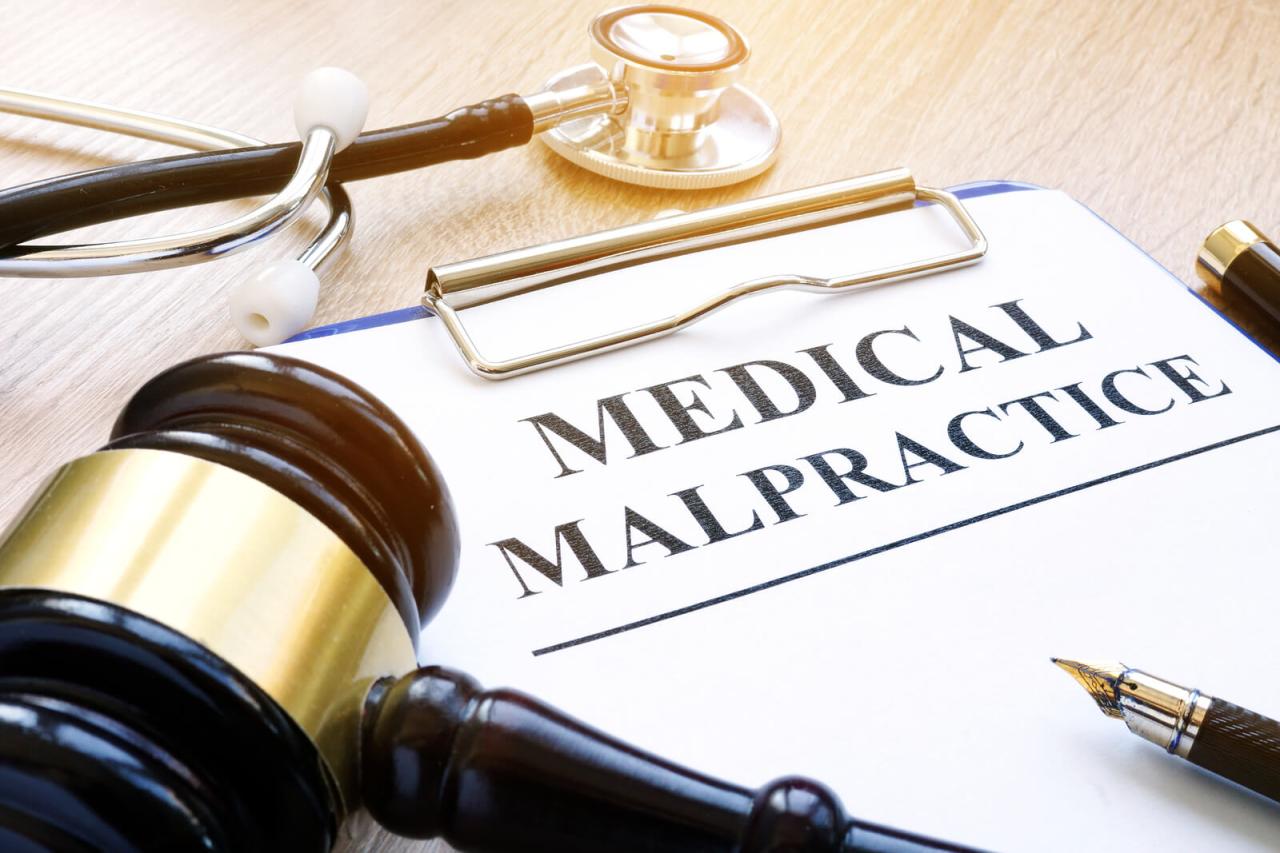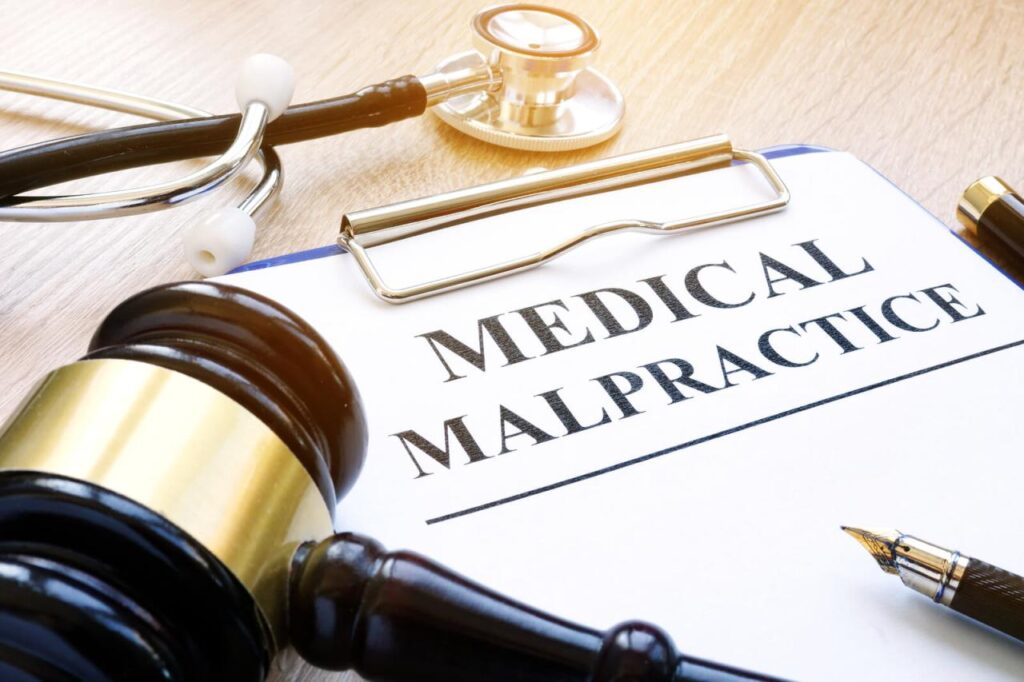Medical Malpractice Attorneys play a crucial role in safeguarding patient rights and seeking justice for those who have suffered harm due to medical negligence. When a medical professional’s actions or inactions result in injury, illness, or even death, these legal experts provide guidance and support to navigate the complex legal landscape.
From understanding the legal definition of medical malpractice to navigating the intricacies of filing a claim, medical malpractice attorneys offer a comprehensive range of services. They act as advocates for their clients, ensuring their voices are heard and their rights are protected throughout the legal process.
Understanding Medical Malpractice
Medical malpractice, also known as medical negligence, occurs when a healthcare professional’s actions or inactions fall below the accepted standard of care, resulting in harm to a patient. It’s a serious legal issue that can have devastating consequences for both the patient and the healthcare provider.
Legal Definition of Medical Malpractice
The legal definition of medical malpractice varies slightly depending on the jurisdiction, but generally involves four key elements:
- Duty of Care:A healthcare professional has a legal obligation to provide competent care to their patients.
- Breach of Duty:The healthcare professional’s actions or inactions fell below the accepted standard of care, meaning they did not act as a reasonably prudent healthcare professional would in similar circumstances.
- Causation:The healthcare professional’s breach of duty directly caused the patient’s injuries or damages.
- Damages:The patient suffered actual harm, such as physical injuries, emotional distress, or financial losses, as a result of the negligence.
Common Types of Medical Negligence
Medical negligence can manifest in various ways, including:
- Misdiagnosis:A healthcare professional fails to correctly diagnose a patient’s condition, leading to delayed or inadequate treatment.
- Surgical Errors:Mistakes during surgery, such as operating on the wrong body part, leaving instruments inside the patient, or causing unnecessary damage to surrounding tissues.
- Medication Errors:Mistakes in prescribing, dispensing, or administering medications, including wrong dosages, wrong medications, or allergic reactions.
- Failure to Obtain Informed Consent:A healthcare professional fails to adequately inform a patient about the risks, benefits, and alternatives of a medical procedure before obtaining consent.
- Delay in Treatment:A healthcare professional delays or fails to provide necessary treatment, leading to worsening of the patient’s condition.
Examples of Medical Malpractice
Here are some examples of situations that might constitute medical malpractice:
- A doctor misdiagnoses a patient’s heart attack as indigestion, leading to delayed treatment and permanent heart damage.
- A surgeon operates on the wrong leg, causing significant pain and complications for the patient.
- A nurse administers the wrong medication to a patient, resulting in a severe allergic reaction.
- A doctor fails to inform a patient about the risks of a particular procedure, and the patient suffers complications as a result.
- A hospital delays emergency care for a patient with a serious injury, leading to permanent disability.
When to Consult a Medical Malpractice Attorney
Deciding whether to consult a medical malpractice attorney can be a difficult decision. However, there are certain situations where seeking legal advice is strongly recommended.
Key Factors Indicating the Need for Legal Representation
Here are some key factors that suggest you should consult a medical malpractice attorney:
- Serious injuries or complications:If you have suffered significant injuries or complications as a result of medical treatment, it’s important to seek legal advice.
- Diagnosis or treatment errors:If you believe you received a misdiagnosis or that your treatment was negligent, you should consult an attorney.
- Unresolved medical issues:If you have ongoing medical issues that you believe were caused by medical negligence, it’s essential to seek legal counsel.
- Difficulties communicating with healthcare providers:If you are having trouble communicating with your healthcare providers or if they are unresponsive to your concerns, you should consult an attorney.
- Concerns about medical records:If you have concerns about the accuracy or completeness of your medical records, it’s wise to seek legal advice.
Common Scenarios Where Legal Advice is Crucial
Here are some common scenarios where seeking legal advice is crucial:
- Birth injuries:If your child suffered injuries during childbirth, such as cerebral palsy or brain damage, you should consult a medical malpractice attorney.
- Wrongful death:If a loved one died due to medical negligence, you may have a wrongful death claim.
- Surgical errors:If you experienced complications or injuries due to a surgical error, it’s essential to seek legal counsel.
- Misdiagnosis of cancer:If a cancer diagnosis was delayed or missed, leading to a more advanced stage of the disease, you should consult an attorney.
Benefits of Consulting a Medical Malpractice Attorney
Consulting a medical malpractice attorney can provide numerous benefits, including:
- Expertise:Medical malpractice attorneys have specialized knowledge of medical negligence laws and procedures.
- Negotiation skills:Attorneys are skilled negotiators and can help you obtain a fair settlement from the healthcare provider or insurance company.
- Legal knowledge:Attorneys can guide you through the legal process and ensure your rights are protected.
- Access to resources:Attorneys have access to expert witnesses, medical records, and other resources that can strengthen your case.
The Role of a Medical Malpractice Attorney
A medical malpractice attorney plays a crucial role in representing clients who have been harmed by medical negligence.
Responsibilities of a Medical Malpractice Attorney
The responsibilities of a medical malpractice attorney include:
- Initial Consultation:Meeting with the client to gather information about the medical incident, review medical records, and assess the potential for a claim.
- Investigation:Conducting a thorough investigation to gather evidence, including medical records, expert opinions, and witness statements.
- Case Evaluation:Analyzing the evidence and determining the strengths and weaknesses of the case.
- Negotiation:Attempting to negotiate a settlement with the healthcare provider or insurance company.
- Litigation:Filing a lawsuit if a settlement cannot be reached.
- Trial Preparation:Preparing for trial, including gathering evidence, interviewing witnesses, and developing legal arguments.
- Trial Representation:Representing the client in court and presenting evidence and arguments to the jury.
- Appeals:Appealing a court decision if necessary.
Steps Involved in a Medical Malpractice Case
A medical malpractice case typically involves the following steps:
- Initial Consultation:The client meets with the attorney to discuss the case and determine if there is a valid claim.
- Investigation:The attorney gathers evidence, including medical records, expert opinions, and witness statements.
- Demand Letter:The attorney sends a demand letter to the healthcare provider or insurance company, outlining the claim and seeking a settlement.
- Negotiation:The attorney attempts to negotiate a settlement with the other party.
- Filing a Lawsuit:If a settlement cannot be reached, the attorney files a lawsuit in court.
- Discovery:Both sides gather information through depositions, interrogatories, and document requests.
- Trial:If the case goes to trial, the attorney presents evidence and arguments to the jury.
- Judgment:The jury decides whether the healthcare provider was negligent and, if so, what damages should be awarded.
- Appeal:Either party can appeal the court’s decision.
Attorney’s Role in Gathering Evidence
Gathering evidence is a crucial aspect of a medical malpractice case. The attorney will:
- Obtain medical records:The attorney will request and review all relevant medical records, including hospital records, doctor’s notes, and test results.
- Seek expert opinions:The attorney will consult with medical experts to determine if the healthcare provider’s actions fell below the accepted standard of care.
- Interview witnesses:The attorney will interview witnesses who have relevant information about the medical incident.
Attorney’s Role in Building a Case
Building a strong case involves:
- Establishing negligence:The attorney must prove that the healthcare provider’s actions or inactions fell below the accepted standard of care.
- Demonstrating causation:The attorney must show that the healthcare provider’s negligence directly caused the patient’s injuries or damages.
- Quantifying damages:The attorney must assess the extent of the patient’s injuries and losses, including medical expenses, lost wages, and pain and suffering.
Attorney’s Role in Representing the Client in Court
In court, the attorney will:
- Present evidence:The attorney will present evidence to support the client’s claims, including medical records, expert testimony, and witness statements.
- Argue legal points:The attorney will argue legal points to persuade the judge or jury that the client is entitled to compensation.
- Cross-examine witnesses:The attorney will cross-examine witnesses for the other side to challenge their testimony.
- Negotiate a settlement:Even during trial, the attorney may attempt to negotiate a settlement with the other party.
The Process of Filing a Medical Malpractice Claim: Medical Malpractice Attorneys
Filing a medical malpractice claim involves a specific process that must be followed to ensure the claim is valid and timely.
Steps Involved in Filing a Claim

The steps involved in filing a medical malpractice claim generally include:
- Consult with an Attorney:The first step is to consult with a medical malpractice attorney to discuss your case and determine if you have a valid claim.
- Gather Medical Records:The attorney will help you obtain all relevant medical records, including hospital records, doctor’s notes, and test results.
- Seek Expert Opinions:The attorney will consult with medical experts to evaluate the standard of care and determine if negligence occurred.
- File a Notice of Claim:In some states, you must file a formal notice of claim with the healthcare provider or insurance company before filing a lawsuit.
- File a Lawsuit:If a settlement cannot be reached, the attorney will file a lawsuit in court.
- Discovery:Both sides gather information through depositions, interrogatories, and document requests.
- Trial:If the case goes to trial, the attorney will present evidence and arguments to the jury.
- Judgment:The jury decides whether the healthcare provider was negligent and, if so, what damages should be awarded.
- Appeal:Either party can appeal the court’s decision.
Statute of Limitations
Each state has a statute of limitations for medical malpractice claims, which is a time limit within which a lawsuit must be filed. Failure to file within the statutory time period can result in the claim being dismissed. The statute of limitations varies from state to state, but it is typically two to three years from the date of the injury or when the injury was discovered.
Understanding Diminished Value is crucial if your property has been damaged in an accident. This legal concept helps ensure you’re fairly compensated for the loss in value of your vehicle or property.
Gathering Medical Records
Obtaining complete and accurate medical records is crucial for building a strong medical malpractice case. The attorney will help you request these records from healthcare providers and ensure that all relevant information is included.
Expert Opinions
Expert opinions from qualified medical professionals are essential for proving medical negligence. The attorney will work with medical experts to review the case, provide opinions on the standard of care, and testify in court if necessary.
Challenges and Obstacles
Filing a medical malpractice claim can be challenging and time-consuming. Some common obstacles include:
- Statute of limitations:It’s important to file the claim within the statutory time limit to avoid dismissal.
- Gathering evidence:Obtaining medical records and expert opinions can be difficult and time-consuming.
- Defense strategies:Healthcare providers and insurance companies have experienced legal teams who will use various defense strategies to minimize liability.
- Financial costs:Medical malpractice cases can be expensive, involving legal fees, expert witness fees, and other costs.
Damages in Medical Malpractice Cases
If a medical malpractice claim is successful, the plaintiff (the injured patient) may be awarded damages to compensate for their injuries and losses.
Facing DUI charges can be stressful, but a Dui Attorney can help you understand your rights and build a strong defense.
Types of Damages
Damages in medical malpractice cases can be categorized into two main types:
- Economic Damages:These are quantifiable financial losses, such as medical expenses, lost wages, and rehabilitation costs.
- Non-Economic Damages:These are intangible losses that are more difficult to quantify, such as pain and suffering, emotional distress, loss of enjoyment of life, and disfigurement.
Calculating and Assessing Damages
Damages are typically calculated and assessed based on the following factors:
- Nature and severity of injuries:The more severe the injuries, the higher the damages awarded.
- Medical expenses:This includes past, present, and future medical costs, such as hospital bills, doctor’s fees, medication, and therapy.
- Lost wages:This includes past, present, and future earnings that the plaintiff has lost due to their injuries.
- Pain and suffering:This is a subjective assessment of the plaintiff’s physical and emotional pain, discomfort, and distress.
- Loss of enjoyment of life:This refers to the plaintiff’s inability to participate in activities they enjoyed before their injuries.
- Punitive damages:In some cases, punitive damages may be awarded to punish the defendant for egregious conduct.
Impact of Damages on the Plaintiff’s Life
The damages awarded in a medical malpractice case can have a significant impact on the plaintiff’s life. They can provide financial compensation for medical expenses, lost wages, and other losses, but they cannot fully compensate for the pain and suffering caused by medical negligence.
The damages can also help the plaintiff rebuild their life and recover from their injuries.
Legal Resources for Medical Malpractice Victims
Victims of medical negligence have access to various legal resources that can provide support and guidance.
Reputable Legal Resources, Medical Malpractice Attorneys
Here are some reputable legal resources available to victims of medical negligence:
- Government Agencies:
- Centers for Medicare & Medicaid Services (CMS):Provides information on healthcare quality and patient safety.
- Food and Drug Administration (FDA):Regulates medical devices and drugs and provides information on medical safety.
- National Institutes of Health (NIH):Conducts medical research and provides information on various health conditions.
- Advocacy Groups:
- The Patient Advocate Foundation (PAF):Provides support and resources to patients facing medical challenges.
- The American Medical Association (AMA):Advocates for patient safety and ethical medical practice.
- The National Patient Safety Foundation (NPSF):Promotes patient safety and works to prevent medical errors.
Accessing Legal Assistance
To access legal assistance, victims of medical negligence can:
- Contact a medical malpractice attorney:Consult with a qualified attorney to discuss your case and explore legal options.
- Seek referrals from trusted sources:Ask friends, family, or other professionals for recommendations for reputable medical malpractice attorneys.
- Use online legal resources:Several websites provide information on medical malpractice laws and attorney directories.
Finding a Qualified Medical Malpractice Attorney
When choosing a medical malpractice attorney, consider the following factors:
- Experience:Look for an attorney with extensive experience in handling medical malpractice cases.
- Reputation:Check the attorney’s reputation and track record of success.
- Communication skills:Choose an attorney who communicates clearly and effectively and who is responsive to your questions and concerns.
- Fees:Discuss the attorney’s fee structure and ensure you understand the costs involved.
Summary
In the realm of healthcare, medical malpractice attorneys serve as a critical resource for individuals seeking justice and compensation for medical negligence. By providing legal expertise, advocacy, and a thorough understanding of the legal process, these attorneys empower patients to navigate the complexities of medical malpractice cases and pursue fair resolutions.
FAQs
What are the common types of medical malpractice cases?
Going through a divorce can be emotionally challenging, and having the right legal representation is crucial. Find the Best Divorce Lawyers Near Me can help you navigate the complexities of this process.
Common types include misdiagnosis, surgical errors, medication errors, birth injuries, and delayed treatment.
Planning for the future is essential, and a Probate Attorney can guide you through the process of creating a will and ensuring your wishes are carried out.
How do I find a qualified medical malpractice attorney?
Seek referrals from trusted sources, research attorney websites, and consult with legal aid organizations.
If you’ve been injured due to medical negligence, seeking legal help is essential. Medical Lawyers Near Me can fight for your rights and ensure you receive fair compensation.
What is the statute of limitations for medical malpractice claims?
The statute of limitations varies by state, but it generally ranges from two to four years.
What are the potential damages awarded in a medical malpractice case?
Damages can include medical expenses, lost wages, pain and suffering, and wrongful death.












